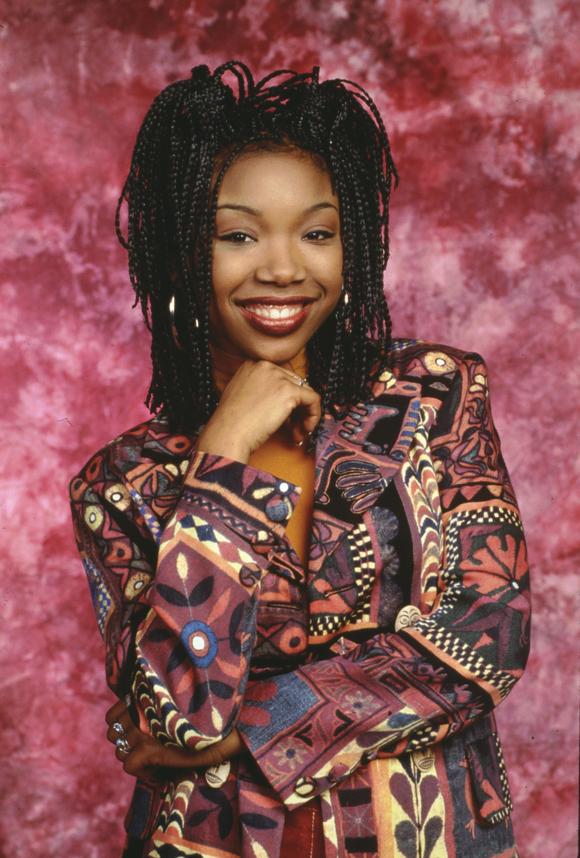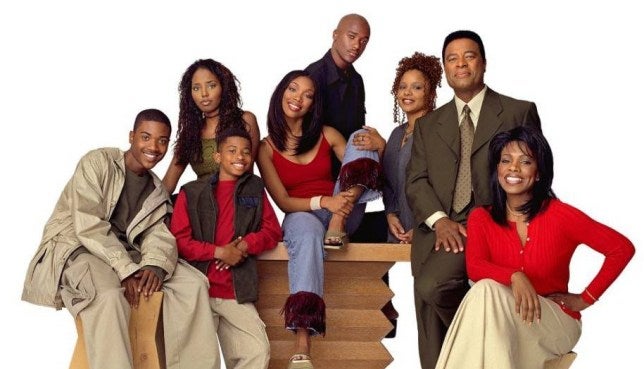Brandy Norwood was hard at work on her sophomore album, Never Say Never, when her mother and then-manager, Sonja, dropped by the recording studio in 1996. Instead of checking on the music, the elder Norwood had a pitch of a different kind.
“She gave me a script that Ralph Farquhar and the other creators of Moesha gave to her,” Norwood recalls, “and I was like, ‘Mom, I’m not an actress.’ ”
The singer, then 16, was no stranger to acting. But having starred in one season on the short-lived series Thea, Norwood admits, “I didn’t really take my acting seriously.” The Mississippi-born, California-raised artist says she agreed to take the leading role in Moesha because she connected with the character, family dynamic and story line.
The UPN series, created by Farquhar, Sara V. Finney and Vida Spears in 1994, was set in South Los Angeles. “Felicia Henderson suggested we go after Brandy, who had just scored with her multiplatinum debut album, and in addition she was on the cover of Seventeen,” remembers Farquhar.
For six seasons starting in the late nineties, young Black girls watched in awe as Moesha lived a carefree life—dancing in Leimert Park in front of its iconic fountain, reflecting on her crazy high school days and nights in her journal and keeping her family in check.
I sucked in the beginning…Everybody thought I sucked.
Back in Norwood’s real world, she was trying to be a normal teen, even taking then NBA hopeful Kobe Bryant to her senior prom. But carrying an entire show on her back wasn’t as easy as laying down vocals in the booth. Norwood, now 40 and a mainstay on the small screen, admits she “sucked in the beginning,” adding that she wasn’t alone in her harsh assessment: “Everybody thought I sucked.”
She credits Living Single actress Kim Fields with teaching her how to act. “She snapped me into major discipline,” Norwood says, noting that Fields would often meet her on tour to pore over scripts. “Without her I wouldn’t have nailed it.”
Sheryl Lee Ralph, who played Moesha’s stepmother Dee, says it was revolutionary to have a young woman who looks like Norwood in the lead role—especially one who’s rocking braids.

“When I first saw her in all her braided glory, I felt as if everything I had gone through as a Black female entertainer had been worth it,” Ralph says.
But for the singer, wearing the protective style didn’t begin as a statement of progress. It was one of necessity, and Norwood wasn’t afraid to tell her truth, even with the whole world watching. She recalls having worked in a hair salon before her singing career took off and a stylist suggested she perm her tresses. “A lot of my hair came out,” she shares. “So that’s why I started wearing braids, and it was one of the best choices I made. It just speaks to who I really am.”

The singer says it’s great hearing how much Moesha impacted a generation—whether it’s from a random encounter with actress Keke Palmer or during interviews like this one or when her 17-year-old daughter, Sy’rai Iman Smith, started watching the entire series in her room unbeknownst to her.
Norwood says she couldn’t have predicted how living authentically onscreen would have affected Black women around the world. “So many women tell me, ‘I never saw myself on television before Moesha,’” she says. “Moesha made brown-skinned people feel like they could do anything.”
This article was originally published in the July/August 2019 issue of ESSENCE magazine.

